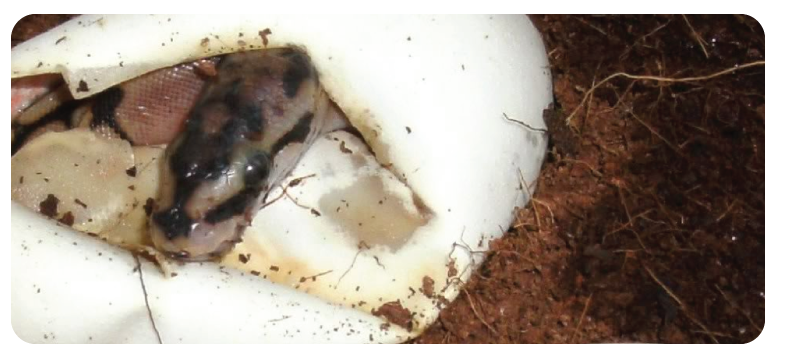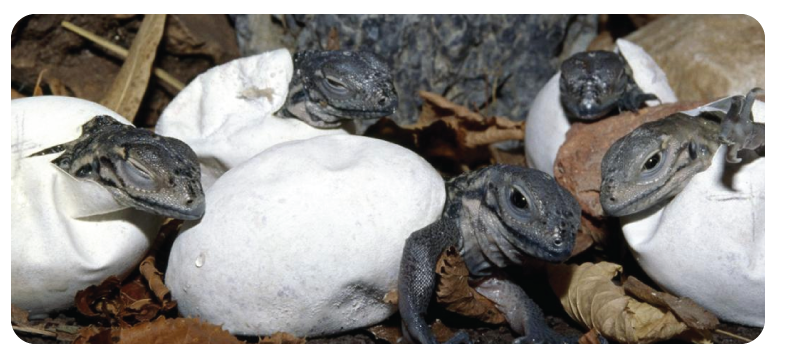Reptile egg incubators work a little differently than an avian egg incubator. This is mainly due to the environmental differences of the two animals. Most reptile eggs must stay moist throughout the entire incubation period. Reptile eggs are usually grouped into these categories, snake, lizard, and turtle. The one major difference between avian and reptilian eggs is that reptile eggs must stay in the same position in which they were lain. It is very important that the specific reptile species that is being incubated has been researched. The incubation duration, temperature, humidity, air needs, and appropriate substrate vary widely.
Snake Eggs
Temperature: 31⁰C-32⁰C
Humidity: 80-90% relative
Substrate: Vermiculite (Best), sphagnum moss, newspaper, paper towels, organic potting soil
Duration: Species vary in duration of incubation periods usually 42-95 days.
Specific Information:
Gravid females usually shed their skin 3-6 weeks before laying eggs.
Lizard Eggs
Temperature: 70⁰F-92⁰F
Humidity: 75%
Substrate: Perlite or Vermiculite
Duration: Very species specific
Specific Information:
Keep in mind most lizards are temperature sex determinate. This means that the temperature range during incubation will determine the sex of the baby. If a sustained middle range temperature is maintained the likelihood of multiple sexes hatching is much higher.
Turtle Eggs
Temperature: 85⁰F-90⁰F
Humidity: 100% (soft shell), and 70% (hard shell)
Substrate: Vermiculite or Perlite
Duration: 8-11 weeks
Specific Information:
Important to get species specific information. Depending on the environment of the turtle temperature and humidity will greatly differ.


